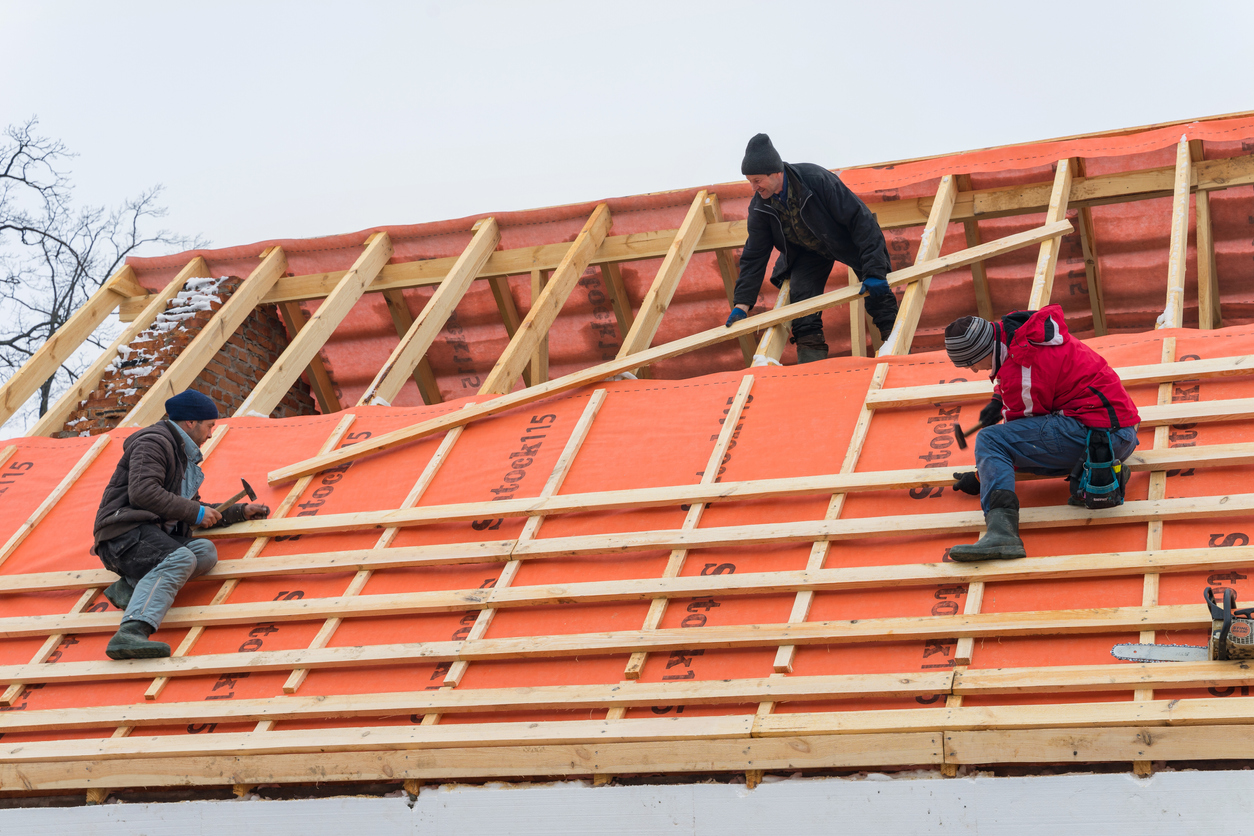Introduction
The connection between attic insulation and the health of your roof is more significant than meets the eye. Proper attic insulation is a crucial factor in maintaining energy efficiency, preventing moisture-related issues, and enhancing the overall lifespan of your roof. In this guide, Ainger Roofing, a roofing company in Collingwood, will delve into how attic insulation affects your roof and provide insights on optimizing this vital relationship.
Understanding the Dynamics: How Attic Insulation Impacts Your Roof
Energy Efficiency: Regulating Temperature Extremes
Attic insulation acts as a barrier that regulates temperature extremes. Inadequate insulation allows heat to escape in winter and infiltrate in summer, leading to temperature imbalances in the attic. This fluctuation not only compromises your home’s energy efficiency but also puts unnecessary stress on the roof, potentially reducing its lifespan. Proper insulation ensures a stable and moderate attic temperature, alleviating strain on your roof.
Moisture Prevention: Safeguarding Against Water Damage
An often overlooked aspect, attic insulation plays a crucial role in preventing moisture-related issues. Inadequate insulation can result in condensation buildup in the attic, leading to mold growth, rot, and even structural damage. Proper insulation creates a barrier that minimizes condensation, safeguarding your roof from the detrimental effects of excess moisture.
Ice Dam Prevention: Maintaining Structural Integrity
In colder climates, ice dams pose a significant threat to roofs. Inadequate insulation allows heat to escape from the home, warming the roof and causing snow to melt and refreeze at the eaves. Proper attic insulation, along with adequate ventilation, helps maintain a consistent temperature on the roof, preventing the formation of ice dams and preserving the structural integrity of your roof.
Roof Longevity: Reducing Wear and Tear
Attic insulation plays a pivotal role in reducing wear and tear on your roof. Fluctuating temperatures, excess moisture, and the potential for ice dams can accelerate the deterioration of roofing materials. A well-insulated attic creates a stable environment, minimizing the adverse effects of weather extremes and contributing to the extended lifespan of your roof.
Optimizing Your Attic Insulation: Tips for Maximum Impact
Assessing Insulation Levels
Start by assessing the current insulation levels in your attic. Insulation thickness and material type impact performance. Consider consulting with insulation professionals to determine the most suitable insulation for your home.
Sealing Air Leaks
Air leaks in the attic compromise insulation effectiveness. Identify and seal any gaps, cracks, or openings that allow air to escape. Proper sealing ensures that the insulation functions optimally, maintaining a consistent temperature in the attic.
Ventilation Considerations
Proper attic ventilation is essential in conjunction with insulation. It helps regulate temperature and prevent moisture buildup. Ensure that vents are unobstructed and provide adequate airflow to complement your insulation efforts.
Professional Inspection and Maintenance
Regular professional inspections of your attic insulation are crucial. Insulation can settle over time, diminishing its effectiveness. Periodic maintenance and adjustments, if necessary, ensure that your insulation continues to provide optimal performance.
Upgrading Insulation for Energy Efficiency
Consider upgrading your attic insulation to more energy-efficient materials. Modern insulation options often offer better thermal resistance, contributing to improved energy efficiency and greater long-term benefits for your roof.
Frequently Asked Questions (FAQs) about Attic Insulation and Roof Health
Can I Install Attic Insulation Myself?
While some insulation projects may be DIY-friendly, it’s advisable to consult with professionals for optimal results. Proper installation is crucial for insulation effectiveness.
How Often Should Attic Insulation Be Checked?
Regular checks, ideally annually, are recommended to ensure insulation effectiveness. Professional inspections can identify issues and provide solutions for ongoing efficiency.
Can Attic Insulation Reduce Cooling Costs?
Yes, proper attic insulation reduces the workload on your cooling systems, leading to potential cost savings. It helps maintain a stable temperature in your home, minimizing the need for excessive cooling.
Is Attic Insulation Necessary in Warmer Climates?
Yes, attic insulation is beneficial in warmer climates. It helps regulate indoor temperatures, preventing excessive heat absorption in the attic and contributing to overall energy efficiency.
Can Attic Insulation Prevent Ice Dams?
Proper attic insulation, combined with adequate ventilation, can help prevent ice dams by maintaining a consistent roof temperature. This reduces the risk of snow melting and refreezing at the eaves.
Does Attic Insulation Impact Home Resale Value?
Yes, an energy-efficient home with proper insulation can contribute to increased resale value. Potential buyers often value homes with lower energy costs and well-maintained insulation.
Conclusion
Roofers in Collingwood say attic insulation is a cornerstone of a healthy and resilient roof. By understanding its impact on energy efficiency, moisture prevention, and roof longevity, homeowners can take proactive measures to optimize insulation and ensure their roof remains a sturdy and enduring protector.

